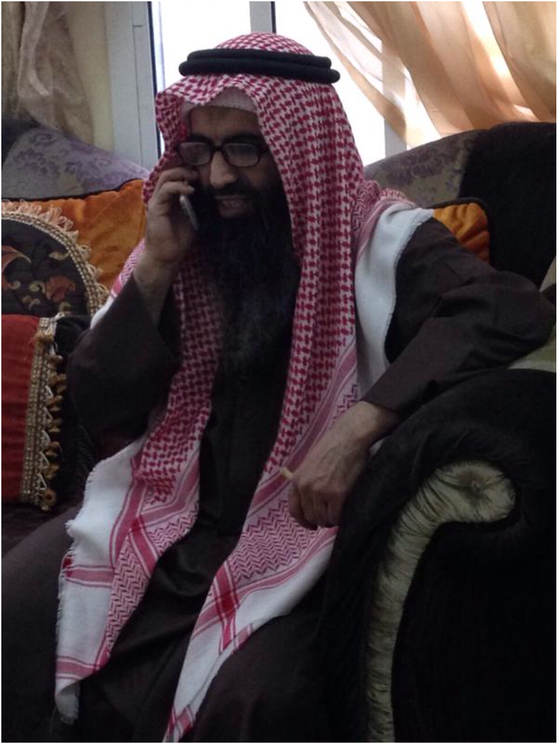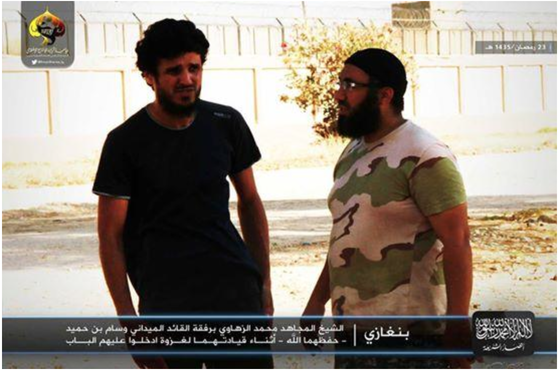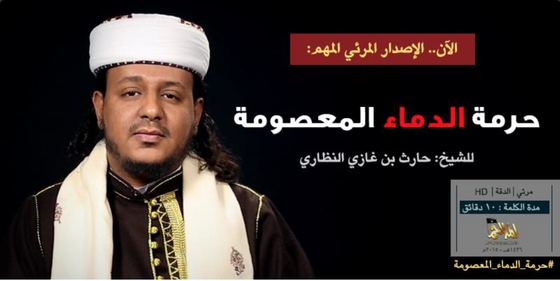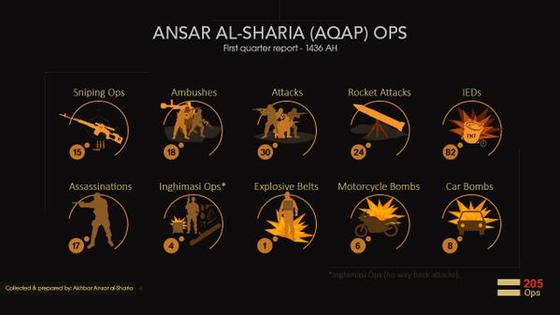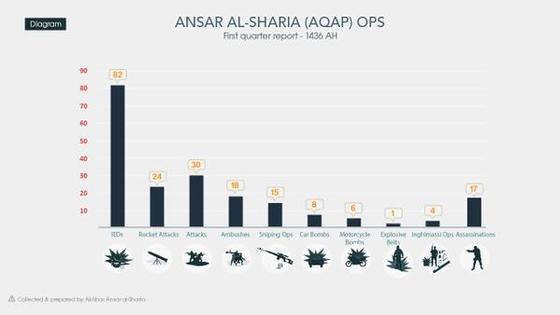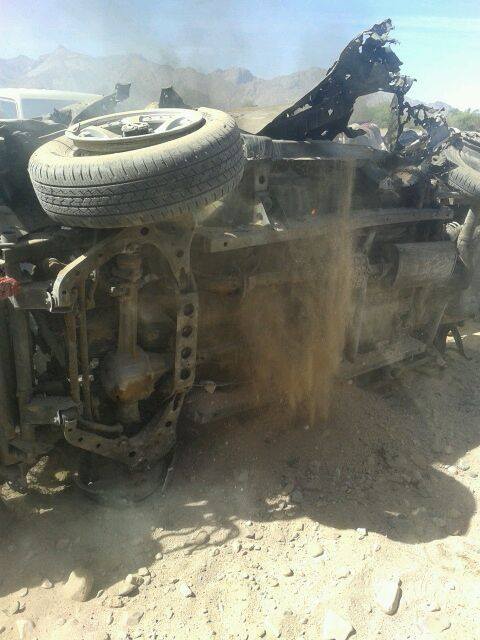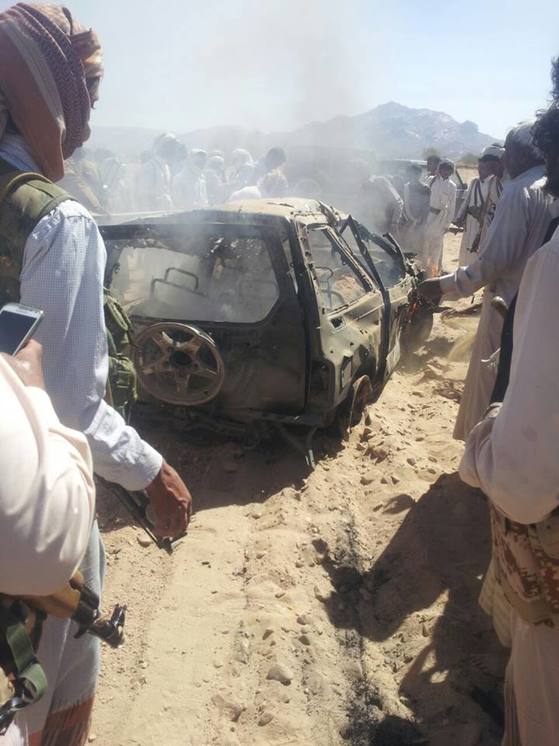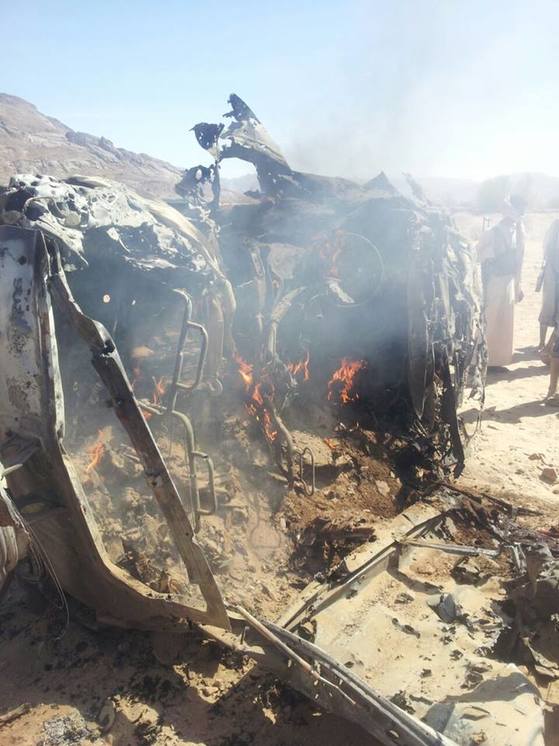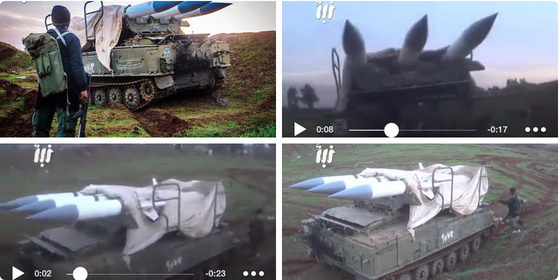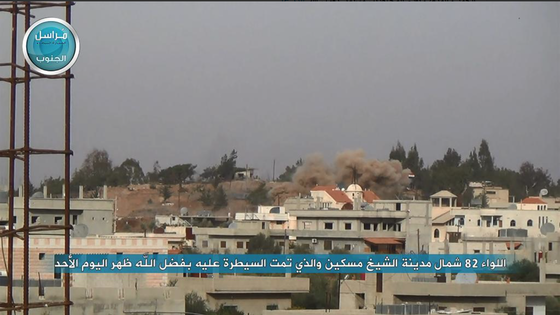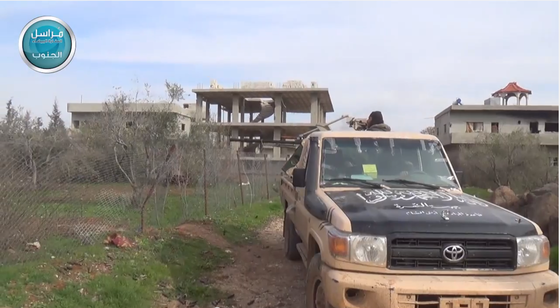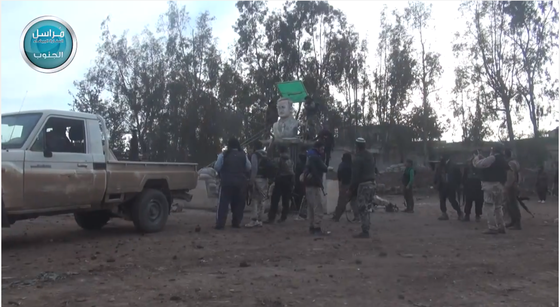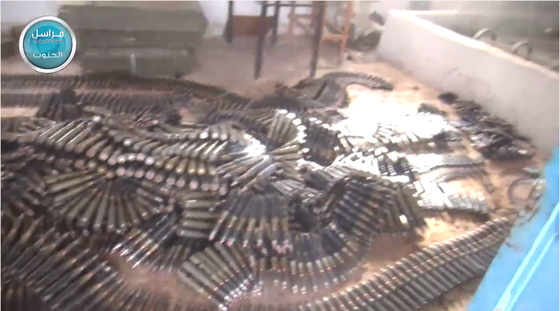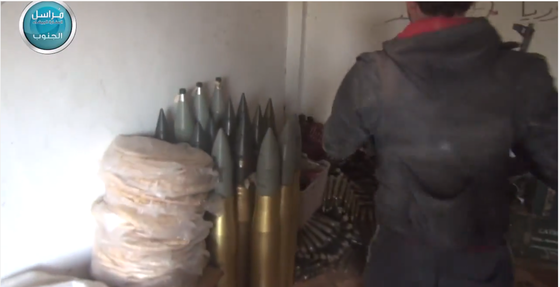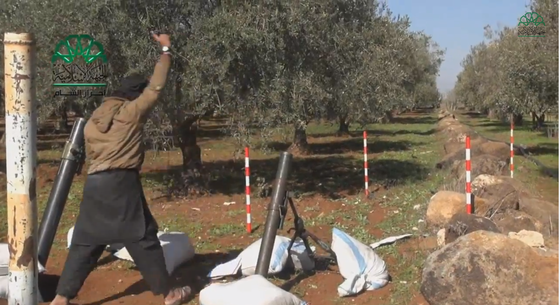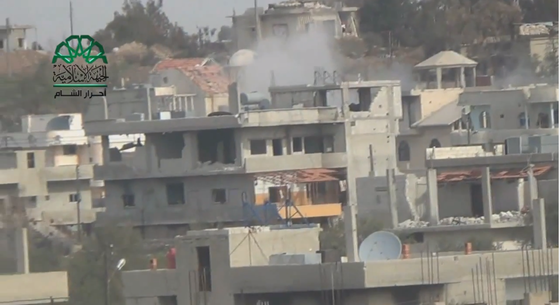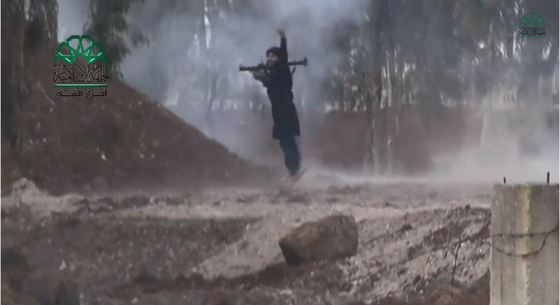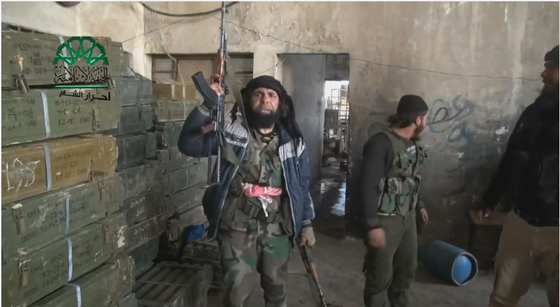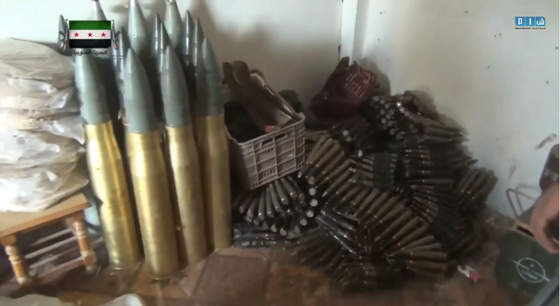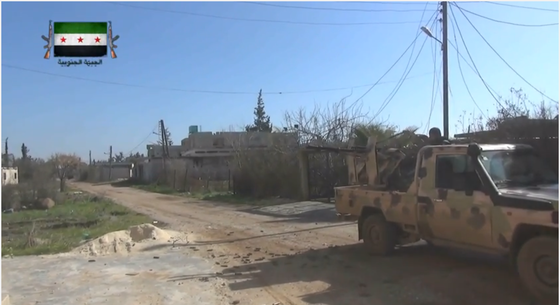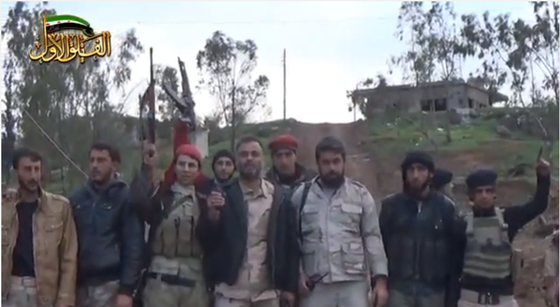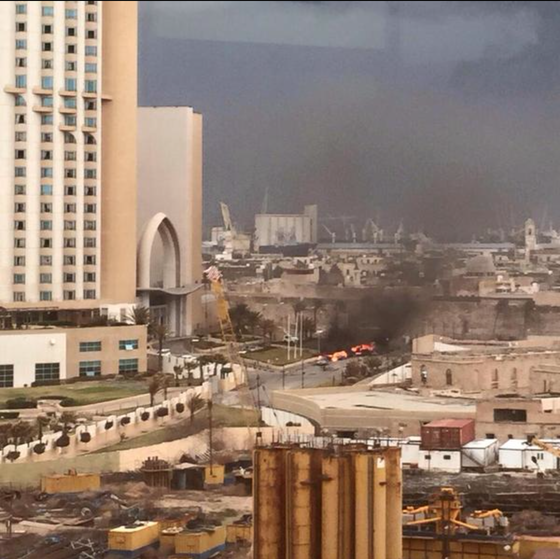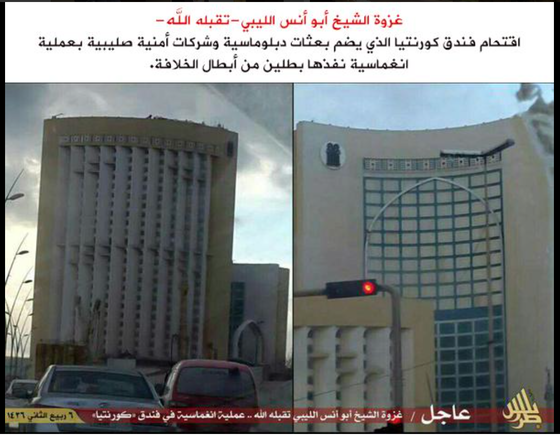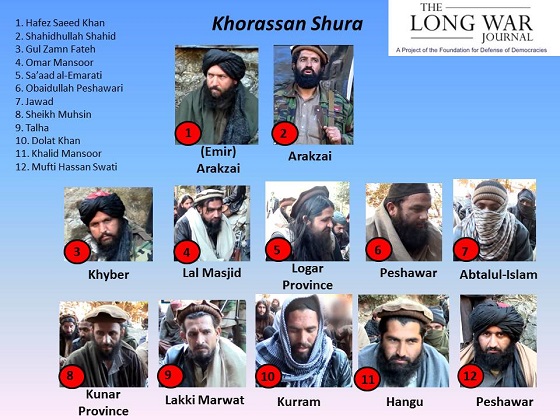Editor's Note: For more on Qatar's track record in fighting terrorism, see Dr. Weinberg's report for the Foundation for Defense of Democracies' Center on Sanctions & Illicit Finance, Qatar and Terror Finance, Part 1: Negligence.
Ali Saleh Kahlah al Marri, an admitted former al Qaeda operative, has been released from a American jail and permitted to return home to Qatar.
No formal statement has been released yet by either government, but it is being reported that al Marri's release was the result of a bilateral agreement between the Qatari and American governments. According to the US Bureau of Prisons, a prisoner with the same name and estimated age (ID number 12194-026) was freed on Friday.
Additionally, a source from al Marri's family told the Qatari press he was recently released and arrived in Doha Saturday. Soon afterwards, the story was confirmed by Agence France Presse (AFP), which spoke to al Marri's nephew.
This followed statements by two of his former attorneys that he was expected to be released within days. And photographs have been posted on social media that reportedly show al Marri coming home to his children for the first time in over a decade. A Kuwaiti newspaper posted video of a man identified as al Marri at the airport in Doha bumping noses with male relatives and kissing his mother's feet.
An al Qaeda sleeper agent
Ali Saleh Kahlah al Marri was at one point the only enemy combatant detained on US soil. According to the terms of a plea deal he accepted in 2009, al Marri "was instructed by Khalid Sheikh Mohammed to enter the United States no later than September 10, 2001" and to await further instructions. Mohammed, also known as KSM, was serving at the time as the chief of al Qaeda's external operations and is considered the mastermind of 9/11 attacks. According to the FBI in 2009, "Ali al-Marri was an al-Qaeda 'sleeper' operative working on U.S. soil."
President George W. Bush indicated that the US intelligence community believes al Marri discussed various targets with KSM, including "water reservoirs, the New York Stock Exchange, and United States military academies." Bush also described him as "a present and grave danger to US national security."
The plea bargain accepted by al Marri acknowledged that his computer's search history included research on "various cyanide substances" according to "the method taught by al Qaeda for manufacturing cyanide gas," as well as research on "dams, waterways and tunnels in the United States, which is also consistent with al Qaeda attack planning regarding the use of cyanide gases". The plea deal also noted that "between 1998 and 2001" he "attended various training camps because he wished to engage in jihad".
In other court documents, US officials alleged that KSM chose al Marri to be an al Qaeda sleeper agent because he had a family and would therefore be less likely to attract suspicion. He was pulled over in a routine traffic stop two days after 9/11 when a police officer saw al Marri's son standing up in the moving car's back seat.
Al Marri was then briefly arrested on an old warrant for driving under the influence and raised authorities' suspicions when he paid his $300 bail out of a briefcase full of bundles of hundred dollar bills. Al Marri would later acknowledge receiving these funds from an al Qaeda financial facilitator in the United Arab Emirates, Mustafa Hawsawi, whom KSM had instructed him to visit. Soon afterwards, al Marri was detained again when law enforcement officials confirmed a telephone at his home had been used to contact Hawsawi, whom they had already connected to one of the 9/11 hijackers.
Hawsawi was captured alongside KSM in early March 2003 and then held in the CIA's controversial detention and interrogation program before being transferred to Guantanamo, where he remains in detention.
Reason for release unclear
Al Marri's release seems to be the end result of a process set in motion by President Obama during his first month in office.
Al Marri had been held for years under solitary confinement at the Navy Brig in Charleston, South Carolina. But President Obama directed the government to reconsider his case in parallel to reviewing all the cases of detainees held at Guantanamo. The president ordered the Defense Department to transfer al Marri to the custody of the Justice Department, which would try him in a civilian court.
However, it is unclear as to why the United States released al Marri now. Taking into consideration what the judge called al Marri's "unacceptable" treatment by the military, al Marri was sentenced to only an additional eight years and four months in prison in late October 2009. His sentence had already been reduced from fifteen years to account for his time in custody of the military. That would have meant a release in early 2018. The reasons for Al Marri's early departure from prison have not been made public. He may have received credit for prior time served in civilian jails and possibly also for good behavior.
The Journal Star newspaper in Peoria, Illinois, where al Marri was living in 2001, reports that he was "was spirited out of the United States on Friday [Jan. 16], two days before he was scheduled to be released from a maximum security prison" in Florence, Colorado. The paper elaborated that "the move was unknown to his attorney Andrew Savage of Charleston, S.C., who had met with his client just one day before."
Initially, it was unclear whether or not the US government had negotiated ground rules with the Qatari government to justify his repatriation there. However, a Qatari-owned Arabic news outlet based in London, al-Araby al-Jadeed, quotes sources close to al Marri's family claiming that his release was the result of a bilateral agreement between the two governments.
Even if the United States did reach some sort of prior understanding about the terms of his release, Doha has violated these sorts of commitments in the past.
Qatar's negligent record
The US government's decision to repatriate al Marri to Qatar is a curious one, to say the least.
Ali al Marri's brother, Jarallah Saleh Kahlah al Marri, was detained at the Afghanistan-Pakistan border shortly after 9/11 and subsequently held at Guantanamo. According to a leaked threat assessment prepared by Joint Task Force - Guantanamo (JTF-GTMO), Jarallah al Marri also spent time at al Qaeda training camps and was suspected of seeking to transfer $10,000 in operational funds to his brother at KSM's direction. He was released back to Doha's supervision in 2008.
The Qatari government violated a pledge to Washington on how it would handle Jarallah al Marri. He was repatriated based on an explicit, written commitment from Qatar that he would not be allowed to leave the country. Qatar even promised to notify Washington immediately if he merely tried to do so.
And yet Washington found out from British authorities that they had arrested Jarallah al Marri on charges of visa fraud, after he had been permitted to leave Qatar not once but twice without mention from the Qatari government. The US ambassador in Doha at the time concluded that the decision to let Jarallah travel was "almost certainly" a decision that involved Qatar's attorney general, who outrageously contended he "was bound only by signed judicial assistance agreements and not diplomatic notes".
At least once Qatar also withheld cooperation from the United States on the case of Ali al Marri himself. A leaked US cable from October 2008 stated that Qatar's attorney general "decline[d] our judicial request on Ali al-Marri," specifically refusing to honor "a long-standing request for banking records" involving him.
More broadly, Qatar has been labeled a permissive jurisdiction for terror finance by the US Treasury Department. It is home to several individuals on US or UN blacklists who allegedly provided high-level funding to al Qaeda. Local authorities have refused to charge the suspected al Qaeda financiers with a crime.
And the last time Qatar promised to keep an alleged senior terrorist operative "under control," that individual showed up several years later on Treasury sanctions announcements as having again transferred hundreds of thousands of dollars to al Qaeda's senior leadership abroad.
Received as a hero
Ali al Marri's reception in Qatar so far should raise additional concerns in the counterterrorism community. The Qatari government has given no public sign it plans to supervise his activities, nor has it indicated disapproval of his prior al Qaeda role. It is unlikely he will face further charges in Qatari court, and he is not currently being detained.
Worse, al Marri is being received as a returning hero.
Abdulrahman al Nuaymi has been blacklisted by the US and UN on charges of terror finance yet enjoys legal impunity in Qatar. Al Nuaymi welcomed the news of Al Marri's release on his Twitter account, while also minimizing any suggestion of wrongdoing on al Marri's part.
"Praise Allah, Brother Ali Saleh Kahlah al-Marri has been released and returned to his country and his people after thirteen years in the prisons of global injustice (America)," a post on al Nuaymi's Twitter feed reads.
Al Nuaymi is not the only one celebrating al Marri's return. According to The Guardian (UK), al Marri's nephew revealed that upon arrival in Doha, his uncle "was greeted by representatives from the Qatari interior and foreign ministries" and is now in "high spirits." He thanked Qatari officials for exerting "tremendous efforts" for his uncle's release.
Similarly, the editor-in-chief of one of Qatar's main newspapers, al-Arab, proclaimed in Arabic on Twitter: "We thank Allah for his favor in returning Brother Ali Saleh Kahlah al-Marri, who was detained by America. Our congratulations to him and to his family, and many thanks to all those who followed his case and worked for his return."
Another major Qatari paper, al-Sharq, covered his release without polemics, but it also elided any mention of al Marri's plea bargain or its contents, including his admitted connection to al Qaeda and plotting against civilian targets. In fact, the story did not even note that he was accused of involvement with al Qaeda, instead simply stating that he was detained in the US in the aftermath of 9/11.
Only one of two articles by the Qatari-owned UK outlet al-Araby al-Jadeed included some limited details from al Marri's plea bargain, but the article quoted Qatar's former minister of justice basically dismissing those admissions as a means to an end for al Marri to get released. The paper also quoted the head of Qatar's state-controlled National Human Rights Commission, who revealed that his group had been pushing US officials for years for Ali al Marri's immediate release.
If this collective amnesia is reflective of how the Qatari authorities feel, Doha will likely give al Marri free rein, viewing him more as a victim than an admitted terrorist agent who plotted mass attacks against civilians for the sake of jihad. This risk seems especially acute given that a Twitter account appearing to belong to his brother, Jarallah, recently lavished praise upon Osama bin Laden and repeatedly publicized a fundraising campaign for Syria that was shut down after allegedly serving as a financial conduit for the Al Nusra Front, al Qaeda's official branch in Syria.
During her confirmation hearings before the Senate Foreign Relations Committee, the current US envoy to Doha, Ambassador Dana Shell Smith, pledged that if confirmed she would monitor the so-called Taliban Five "continuously" at "the very top of my list of priorities." The Taliban Five is a group of senior Taliban leaders who were exchanged for Sgt. Bowe Bergdahl last year. Qatar helped broker the swap.
Smith testified she would work "every morning when I wake up, every night when I go to sleep, to reassess whether these people [the Taliban Five] pose any threat whatsoever, to our national security."
Smith may wish to add the al Marri brothers to the list of jihadists she monitors.

